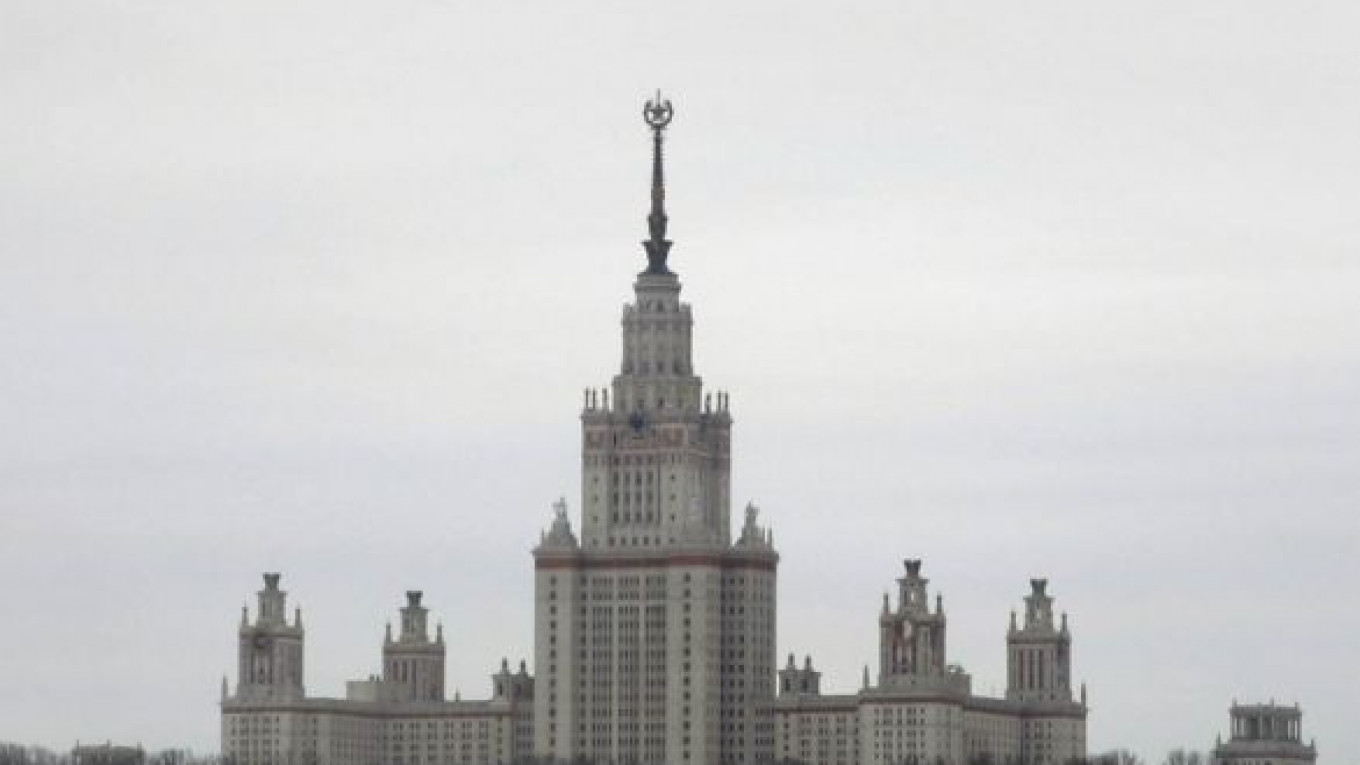Russia's two most well known universities — Moscow State University and St. Petersburg State University — have dropped for the third year in a row in a global ranking conducted by Quacquarelli Symonds.
This year, MGU is in overall 116th place, which makes it the top Russian university on the list. But it's down from last year's ranking of 112, as well as its position in 2010, which was 93rd. St. Petersburg State University was ranked 253rd this year, versus 251st in 2011 and 210th in 2010.
The two universities did poorly when it came to academic writing in international journals on the part of the teaching staff, as well as the quantity of international students and teachers. But MGU did score well in terms of its academic reputation and its reputation among employers, at 95th place and 99th place, respectively.
The ranking is based on qualitative indicators, as well as opinion surveys of companies, professors and academic experts. More than 16,000 employers and 32,000 experts participated in this year's survey. The opinion of 120,000 students from 500 universities worldwide was also factored into the rating.
There were 14 Russian institutions that made the ranking, including two new-comers: The Far Eastern Federal University and The Plekhanov Economic Academy. Some Russian universities moved up the ranking by more than 20 places: The Higher Economics School, Novosibirsk State University, Peoples' Friendship University, Bauman State Technical University and Moscow State Institute of International Relations. Altai State University dropped off the list this year.
Related articles:
A Message from The Moscow Times:
Dear readers,
We are facing unprecedented challenges. Russia's Prosecutor General's Office has designated The Moscow Times as an "undesirable" organization, criminalizing our work and putting our staff at risk of prosecution. This follows our earlier unjust labeling as a "foreign agent."
These actions are direct attempts to silence independent journalism in Russia. The authorities claim our work "discredits the decisions of the Russian leadership." We see things differently: we strive to provide accurate, unbiased reporting on Russia.
We, the journalists of The Moscow Times, refuse to be silenced. But to continue our work, we need your help.
Your support, no matter how small, makes a world of difference. If you can, please support us monthly starting from just $2. It's quick to set up, and every contribution makes a significant impact.
By supporting The Moscow Times, you're defending open, independent journalism in the face of repression. Thank you for standing with us.
Remind me later.






